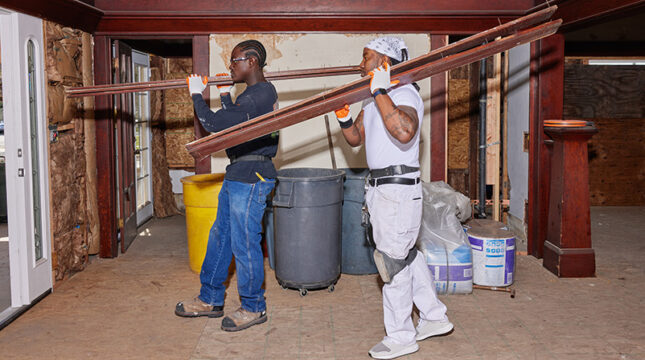NEXT catering customer Simileoluwa Adebajo shares how easy it is to get coverage.
Catering insurance is vital for every small business, and it’s essential for the food service industry. Insurance gives you financial protection if someone gets hurt or you are held responsible for damaging property that doesn’t belong to you. Event venues often require it.
Most caterers usually choose insurance coverage that includes:
- Workers’ compensation insurance: This can help pay for medical care and lost wages after an employees’ workplace injury. It’s required in most states if you have employees.
- Commercial auto insurance: Most states require commercial auto insurance for business-owned vehicles to help pay for medical expenses and property damage in case of accident.
4. Apply for a general business license
In most states, you will need a business license or business permit to give you the right to conduct business in your area. A local government agency usually handles permit applications and issues these documents.
Business license fees vary depending on your catering business and location. Expect to pay a license processing or filing fee and the cost of the license itself.
5. Get for a license for a catering business
Catering license requirements vary by location. Call your local Small Business Development Center or the local branch of your department of agriculture and ask how to get a catering license in your area.
These centers are designed to help new businesses get started and to help existing small businesses succeed. They offer a great deal of free information and assistance, and they can help you work through all the details of getting your catering operation off the ground.
A catering license or permit often includes a health permit or inspection. A health inspector will likely visit your commissary kitchen to ensure that you meet all state and local requirements for commercial food preparation and safety.
If you want to sell alcoholic beverages, you will need a separate alcohol permit. Again, check with your Small Business Development Center.
6. How NEXT helps caterers find easy and affordable insurance
Catering business insurance from NEXT is flexible and customizable. It gives you the coverage you need to grow with your business.
Get a quote, find your price and access your certificate of insurance in about 10 minutes. Manage your policy online or on the app 24/7.
Start a free instant quote with NEXT.






